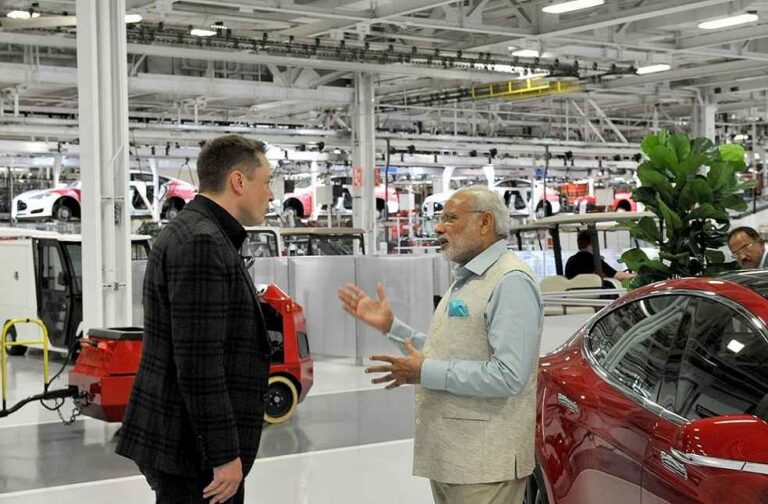India’s recent announcement to slash import taxes for electric vehicles heralds a transformative shift in its automotive sector, positioning the country as a magnet for Tesla and other global car giants. This strategic move intricately links EV tax reductions with substantial investments.
Investment-Linked Tax Incentives Set the Stage
Central to this groundbreaking policy is a compelling directive: entities poised to channel at least $500 million into India’s market and erect manufacturing facilities within a three-year horizon will reap the rewards of reduced taxation. This policy blueprint carves a path for Tesla, among others, to forge deep inroads into the Indian market, leveraging fiscal incentives to their advantage.

Tesla’s Patient Strategy Yields Results
Navigating through bureaucratic and regulatory challenges, Tesla, under Elon Musk’s stewardship, has emerged victorious. Musk’s diplomatic engagements and strategic dialogues with Indian policymakers, including a significant consultation with Prime Minister Narendra Modi, have culminated in this policy breakthrough, mirroring Tesla’s resilience and forward-looking agenda for India.
A Global Invitation to India’s EV Market
The policy introduces a judicious tax regimen, pegging the rate at 15% for EVs valued above $35,000 — a stark contrast to the erstwhile daunting tariffs of 70% to 100%. This recalibration of tax codes signals a warm invitation to international automakers, eyeing India’s promising EV segment for sustainable mobility ventures.
The Ripple Effect: Opportunities Beyond Tesla
While Tesla stands at the forefront of beneficiaries, the ripple effects of India’s tax policy revision beckon a broader spectrum of global auto manufacturers. Notably, VinFast’s $2 billion venture to kickstart a manufacturing hub in Tamil Nadu exemplifies the magnetic allure of India’s EV landscape, spurred by these policy innovations.

Cultivating a Green Mobility Ecosystem
This policy transcends the realm of fiscal adjustments, aiming to spark a revolution in electric mobility. By stimulating competition, scaling up production, and driving down costs, the initiative ambitiously targets elevating electric vehicles’ market share to 30% by 2030, underscoring India’s commitment to a sustainable automotive future.
Ensuring Compliance Through Strategic Mandates
With precision-engineered limitations and compliance protocols, including import volume caps and bank guarantee stipulations, the policy ensures stringent adherence to its lofty goals. These safeguards affirm India’s vision of nurturing a robust, autonomous EV industry, poised for global influence.
DON’T MISS | Italy-China Auto Ties: Strategy Reshapes Economic, Geopolitical Terrain





